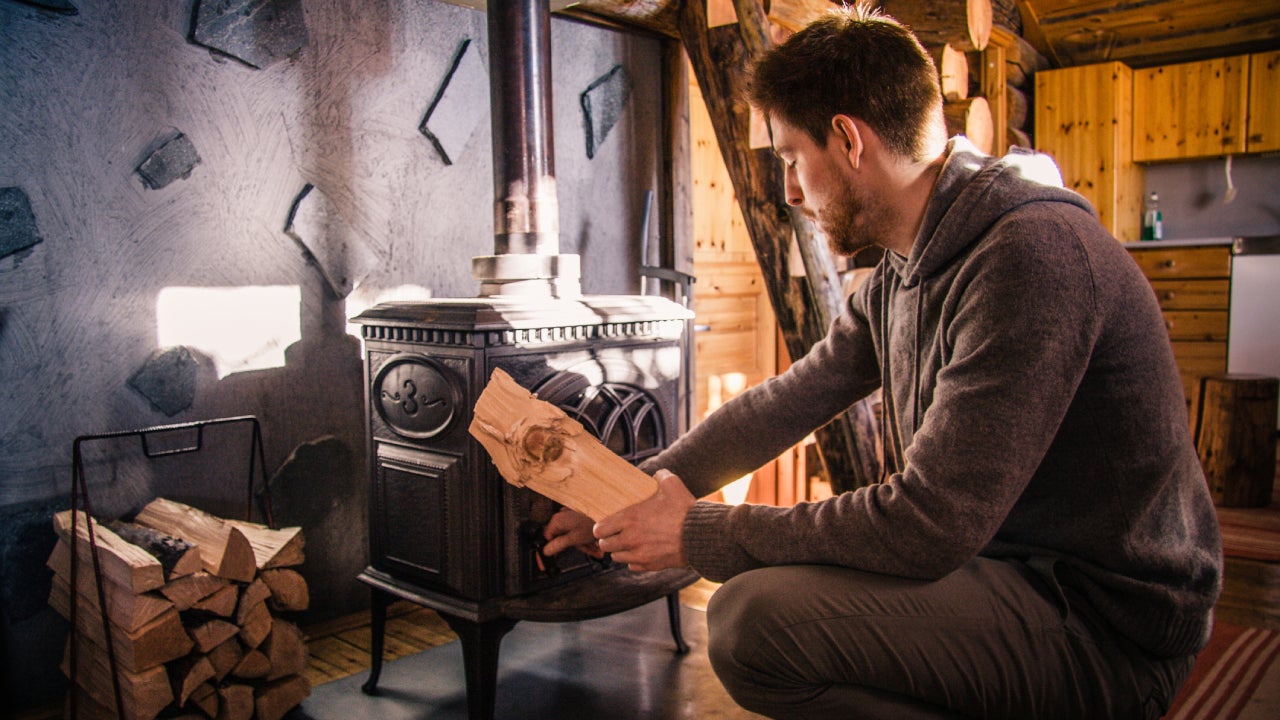Can you get homeowners insurance without an inspection?



When you apply for homeowners insurance, your potential insurer wants to know what kind of risks they will be taking on by covering your property. Because of this, it’s normal for them to request a home insurance inspection. This inspection may be as simple as a drone fly-over or a qualified inspector driving by your home. Sometimes, however, it is more complicated, and you will need to allow an inspector to assess your home both indoors and out. In this guide, Bankrate’s insurance experts explain what is often involved in home inspections, and how to prepare for them.
Do I need a home inspection to get insurance?
Although it may be possible to purchase homeowners insurance without an inspection, it’s unlikely to happen. There are few insurance companies that don’t require a home inspection to underwrite your policy. They need information about your home — its age, what it’s made of and, perhaps most importantly, its condition — in order to determine your premium. For example, if your home has a 20-year-old roof that’s in rough shape, your insurer may charge more for your policy than if your roof is brand new. Why? Because an old roof is more likely to suffer from damage in a winter storm, thus leading to your need to file a claim. Since claims cost your insurer money, they compensate by charging you more.
Not all insurers require a home inspection to obtain coverage. But some scenarios may increase the likelihood of a home inspection for insurance:
- Living in an older home
- Switching carriers
- An inspection has not been completed in the last 10 years
- Replacement value on certain items cannot be identified without one
Additionally, other entities involved in your real estate transaction may mandate an inspection. If you are working with a lender, they might stipulate that a home inspection be completed before they approve your mortgage loan. If you’re selling your home, a home inspection is usually not required. However, sellers are usually required to have an appraisal done to determine the home’s value.
Can I use an appraisal to get homeowners insurance?
Your homeowners insurance provider might accept an appraisal in place of a formal inspection, however, this is up to the carrier’s discretion. Typically, the more recent and detailed the appraisal, the more likely the insurance company is to accept the appraisal in lieu of a home inspection. However, appraisals do not serve the same purpose as inspections and are usually much less thorough in discovering potential risks. Especially if the home you plan to purchase is particularly old, you will most likely need an inspection completed rather than an appraisal.
If your insurance provider does accept an appraisal, the seller will have this information available since they typically need to pay for an appraiser to evaluate the home before placing it on the market. By contrast, home inspections completed during the home purchasing process are paid for by the homebuyer. In many cases, homebuyers will submit an offer on a property contingent upon home inspection, meaning they may legally back out of the contracted sale if the home inspection does not meet their expectations.
What to know about a home insurance inspection
There are several ways your insurer may inspect your home. If it’s a new build or an inspection was done in the past few years, a simple drive-by inspection may be enough to satisfy the underwriters. As drone technology has improved, allowing for high-quality images to be obtained, drone inspections have also become more popular, especially for insurers looking to assess the condition of a home’s roof.
Another type of inspection commonly used for homeowners insurance policies is a 4-point option that focuses on several important aspects of your home. Your inspector will want to review and assess the following elements:
- Roof
- Plumbing
- Electrical
- Heating & Cooling Equipment (HVAC)
These items have a set lifespan, and insurers can use the information gathered through the home inspection to determine the likelihood that you might file an imminent claim. However, home inspectors do not have the qualifications necessary to perform a detailed analysis of any needed repairs. For example, if the home inspector flags your plumbing system as needing work, you will likely need to hire a professional plumber to actually identify the specific repair required to fix the problem.
If the property you plan to purchase fails the 4-point inspection, you will likely not be able to purchase a homeowners insurance policy until the existing issues are remedied. Any expenses you incur from having the work completed, including replacing items like an HVAC system to pass the home inspection, are yours to pay and not the responsibility of the insurance company or inspector.
What else will be inspected?
In some circumstances, your insurer may request a whole home inspection, which is more comprehensive than either a drive-by or 4-point inspection. This type of review focuses partly on hidden areas of your home, and may bring to light potential problems that could result in a claim. An inspector doing a whole home inspection is likely to look into the following, as well as the systems covered by the 4-point inspection:
- Chimneys: Inspectors will likely look for any loose bricks or cracks that might allow moisture or pests to enter the home, or smoke to escape, posing a fire risk.
- Water and mold damage: Black mold, basement moisture, cracks in the foundation and more may all be identified through a whole-home inspection.
- Pests: Your home inspector will typically look for any evidence that termites, rodents and other unwanted pests exist in the home.
- Lead-based paint and asbestos: These dangerous materials were used in the construction of older homes, and may be identified by your whole-home inspector during their evaluation.
- Structural components: Inspectors may look in crawlspaces and attics to assess the foundation and flooring structure of the building, as well as the structural integrity of the walls.
- Exterior elements: This can include an assessment of exterior doors, windows, decks and balconies, porches and stoops, and the surface drainage and grading done to ensure that the house does not easily flood.
- Interior elements: Your home inspector is likely to determine if steps, staircases and railings are safe, countertops and cabinets functional, garage doors in working condition and all appliances working normally.
- Insulation and ventilation: The inspector will check insulation and vapor retarders in unfinished spaces, as well as the exhaust systems in kitchen, bathroom and laundry. They will also look at the clothes dryer’s exhaust system, if there is one, to ensure it functions.
- Fireplace and solid fuel burning appliances: If the home has a fireplace or wood-burning stove, the inspector should visually determine if these are properly installed and working as they should.
Tips for passing a home inspection
When scheduling a home inspection on a home you do not yet own, be sure to communicate with the seller regarding the date of the inspection. If you do own the home, or if you are a seller preparing a home for inspection, there are many things that you can do that may increase your chances of passing a home inspection:
- Complete necessary yard work: When preparing for a home inspection, it may be a good idea to trim tree branches hanging too closely to your roof or home. Walk the perimeter to ensure all dirt and mulch is at least six inches from your home’s siding, and ensure all shrubbery is at least a foot from the home.
- Inspect the exterior: Inspect your siding for peeling paint, warped boards, gaps, cracks and other damage. Be sure your caulking and weather stripping is secure around doors and windows, and that they do not expose any nails. Look for any foundational cracks or damage, and ensure the gutters are cleaned and in working order.
- Prepare your plumbing: Test your sinks, showers, tubs, faucets and drains for clogs and drips. Be sure to identify any leaks that may exist and ensure your toilets do not run when flushed. Inspect your crawl space or basement for any leaks or water damage that need repair.
- Examine your electrical: Check that your lights, switches and outlets all function properly. Test your HVAC equipment as well to ensure electrical connections work as they should. Replace air filters in your heating and cooling equipment and make sure they are clean and clear of debris.
- Do a deep clean: Take care to thoroughly clean all areas of your home, including appliances, attics, crawl spaces, plumbing fixtures, HVAC equipment and more. If you have pets, it may be a good idea to either take them with you or keep them safely locked away during the inspection.
By taking the time to prepare ahead of the inspection, you may increase your chances of passing and obtaining the necessary insurance coverage.
What happens if my house fails the home inspection?
If you fail an insurance home inspection, it is likely still possible for you to obtain a homeowners insurance policy. In some cases, an insurer may issue a policy that stipulates you must make certain repairs within a set timeframe (typically a 30-day period). For example, if your roof is damaged and in need of dire repair, your homeowners insurance provider might require you to have it replaced within a certain period of time in order to keep your policy in effect.
Some older homes in extreme disrepair or that haven’t had the plumbing and electrical updated may not qualify for standard home insurance. When this happens, you may have better luck finding coverage through companies that specialize in insuring high-risk properties. Insurance carriers in the excess and surplus markets are typically able to take on more risk than a standard carrier whose policies are financially backed by the state’s insurance department, which might make it easier for you to obtain coverage for higher-risk properties.
In some cases, you still might not be able to find coverage through the surplus market. If that’s the case, you may be able to get insured through your state’s FAIR Plan. The Fair Access to Insurance Requirements Plan may be available in certain high-risk areas in your state where private home insurance coverage isn’t available. These plans are usually more expensive than those offered through the voluntary market and are intended as a last-resort for homeowners who are unable to obtain coverage through traditional means.
Frequently asked questions
Why we ask for feedback Your feedback helps us improve our content and services. It takes less than a minute to complete.
Your responses are anonymous and will only be used for improving our website.
You may also like

Does homeowners insurance cover your swimming pool?

Does homeowners insurance cover termites?

Does homeowners insurance cover renovations?

Does homeowners insurance cover wood stoves?
